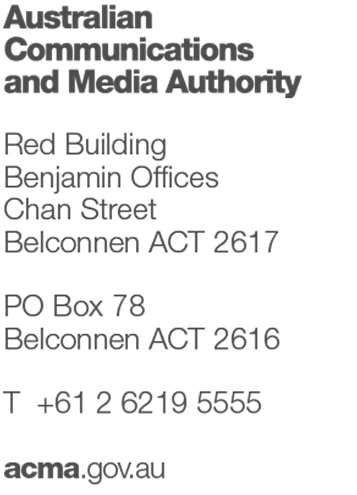

1 June 2023
Watson Norwood
By email: xxxxxxxxxxxxxxxxxxxxxxxxxx@xxxxxxxxxxx.xxx.xx
Dear Watson Norwood,
Notice of intention to refuse access to documents under the Freedom of
Information Act 1982
I refer to your Freedom of Information Act 1982 (FOI Act) request dated and
received on 6 May 2023 in which you sought access to “a complete copy of the
departments' Freedom of Information (FOI) logs for the period 2013-2023,
including any secondary departments control ed by the agency.”
Further, your request states: “I request that this is provided as a document and
not a simple redirect to the agency website as I am of the view that your online
disclosure logs do not actively reflect your FOI requests that you have received
in this period. I would appreciate it if you could provide me with this information in
an electronic format, such as a PDF or spreadsheet, if possible.”
I am an officer authorised under subsection 23(1) of the FOI Act to make
decisions in relation to FOI requests.
Fol owing receipt of your request I emailed you on 11 May 2023 explaining the
extent of the information available on the ACMA’s FOI Disclosure Log that is
published on the ACMA’s website and invited you to consider clarifying the scope
of your request. No further information has been provided.
Under paragraph 24AA(1)(a) of the FOI Act, if the work involved in processing a
request would substantial y and unreasonably divert the resources of the ACMA
from its operations, the request may be refused (the practical refusal reason).
The purpose of this letter is to advise you that it is my intention to refuse access
for this reason (section 24AB of the FOI Act). Before I make my final decision,
you have an opportunity to revise your request to remove this ground for refusal,
for example, by narrowing it to make it more manageable. I have set out below
why I consider the practical refusal reason exists as this may assist you to make
a revised request.
Practical refusal reason
You have sought access to a complete copy of the ACMA’s FOI logs for the period
2013-2023. Given that you have specifical y referred to the information available
on the ACMA’s website, I understand your request to be for a ‘log’ (containing a
description of each request, and the outcome of the request, but not the
Page 1 of 3
documents released) of al of the FOI requests received by ACMA in the period
between 2013 and 6 May 2023, the date of your request.
I can again confirm that the Disclosure Log that appears on the ACMA website
(www.acma.gov.au) is a complete record of al FOI matters since 2011, in relation
to which the ACMA was required to publish documents released under the FOI
Act on the Disclosure Log. Al log entries since 2013 are stil on the website and
have not been removed.
As previously advised, in addition to the matters listed in the Disclosure Log, the
ACMA receives several other FOI requests a year which are not included in the
Disclosure Log for a number of reasons, including where the FOI request was:
withdrawn by the applicant, either because access is provided
outside of the FOI Act or otherwise,
held to be invalid,
refused on the grounds that the documents sought do not exist,
transferred to another agency for processing, or
solely for personal information about the applicant or another
person.
While the ACMA records and processes every FOI request received, the ACMA
does not maintain any other log of FOI requests, other than the Disclosure Log
that the ACMA is required to maintain and publish under the FOI Act – that is, the
information you are seeking access to is not available in the form of a discrete
written document. I note that you have specifical y sought access to the
information in the form of a document (a spreadsheet or in PDF).
I note that subsection 17(1) of the FOI Act provides that where it appears from an
FOI request that the desire of the applicant is for information that is not available
in discrete form in written documents of the agency, and the agency could
produce a written document containing the information by the use of a computer
or other equipment that is ordinarily available to the agency for retrieving or
col ating stored information, the agency should deal with the request as if it were
a request for access to a written document so produced and containing that
information and. Subsection 17(2) provides that “An agency is not required to
comply with subsection (1) if compliance would substantial y and unreasonably
divert the resources of the agency from its other operations.”
Processing your FOI request as currently framed would involve the ACMA
compiling a ‘log’ of al FOI requests made to the agency over the last 10 years.
Al of the ACMA’s FOI requests are coordinated by the ACMA’s FOI coordinator
who sits within the Legal Services Division and who performs this role as part of
their other work responsibilities. Requests are processed by the sections within
the agency who hold or have responsibility for the documents sought. Each FOI
request received is processed and filed on the ACMA’s document management
systems in separate files.
A substantial amount of work would be involved in searching and retrieving details
of every FOI request received over 10 years, describing each request, the
outcome of the request and creating a log of the requests received.
Having identified, retrieved and compiled the document, a decision must then be
made as whether access should be granted, in ful or in part. This may require
consultation with persons - for example, the ACMA may need to consult with the
applicants who made the FOI requests, depending on the information being
Page 2 of 3
disclosed. Given the number of requests involved, this would potential y be a
substantial amount of work for the agency.
The ACMA is a relatively smal agency, with less than 400 staff. Given this, the
ACMA, as set out above, does not have a separate FOI section and FOI requests
are managed through the Legal Services Division by the FOI Coordinator who
performs this role as part of their other work duties and responsibilities. That being
so, I consider that processing a request of this size would amount to a substantial
and unreasonable diversion of the resources of the ACMA away from its statutory
functions and operations.
Effect of the notice
Under section 24AB of the FOI Act you now have a period of 14 days commencing
from the day after you receive this notice (the consultation period) to do one of
the fol owing in writing:
withdraw your request
make a revised request
indicate that you do not wish to revise your request.
During the consultation period you may wish to contact the officer listed below
who may be able to assist you to revise your request. Some of the ways you may
wish to narrow the scope of your request might include reducing the timeframe
and/or excluding al personal information.
Please note that if you do not contact the contact officer or do one of the three
things listed above during the 14 day consultation period (by 15 June 2023), your
request wil be taken to have been withdrawn.
Please also note that the time taken to undertake this consultation is not taken
into account for the purposes of the 30 day time limit for processing your FOI
request. Time for processing wil recommence when you make a revised request
or indicate that you not wish to revise your request.
Contact details
As noted above, if you would like assistance to revise your request you may
contact Morgan Vaudrey, the ACMA’s FOI Coordinator on (03) 9963 6800, or by
email: xxx@xxxx.xxx.xx.
Yours sincerely
Dharshi Jeyaseelan
Senior Lawyer
Legal Services Division
Page 3 of 3

